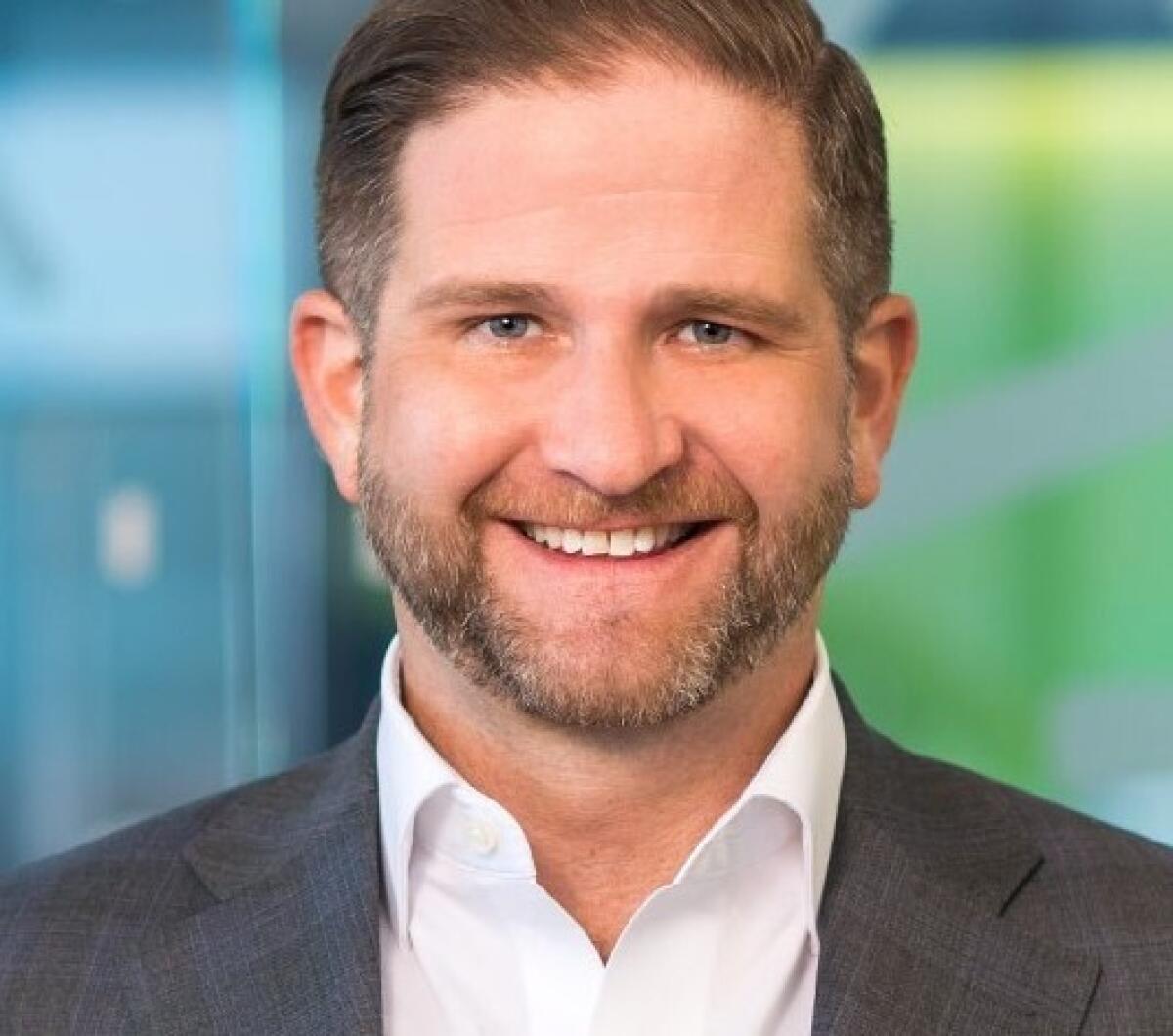Elon Altman and Shawn Hansen Give Insights on Trends in Intellectual Property Licensing & Litigation
The Latest Trends in Intellectual Property Licensing and Litigation panel is produced by the L.A. Times B2B Publishing team in conjunction with Citrin Cooperman and Nixon Peabody LLP.
In an ever-changing business landscape with a host of “new normal” protocols, emerging tech and evolving workplaces, a number of new factors have arisen recently in terms of managing intellectual property, licensing and litigation. As IP best practices for businesses continue to shift, even the most seasoned C-suiters find themselves seeking answers to crucial questions.
To address these issues and concerns, the Los Angeles Times B2B Publishing team turned to two uniquely knowledgeable professionals for their thoughts and most important “need-to-know” insights as well as to get their assessments regarding the current state of intellectual property legislation and the various trends that they have been observing in general.
Q: What’s the number one IP question or concern you’re hearing from clients?

Shawn Hansen, Partner, Intellectual Property, Nixon Peabody LLP: One issue on almost every client’s list of IP concerns is non-practicing entities – or, less diplomatically, “patent trolls.” These are companies that own patents but do not make products. Often, they are second- or third-hand purchasers of their patents. Many are shell companies funded by anonymous investors that exist for the sole purpose of owning patents and filing litigation to extract settlements. These patent trolls often sue small companies for patent infringement and seek to settle for significantly less than the cost of defense. This is a daunting prospect for the companies that are targeted; fortunately, there are ways to fight back. Our team can collaborate with clients to develop a robust, cost-effective defense that positions them for success and signals to the next would-be troll that a patent holder won’t roll over easily.

Elon Altman, Director, Music Economics and Valuation Services, Citrin Cooperman: A common question we receive from clients is how will inflation affect the music industry? The music industry has changed, becoming an all-access streaming model for a very low monthly price. So even if subscription costs were to rise, it is unlikely that consumers would be so sensitive to price that they would discontinue their subscriptions. In addition, music has been historically more recession-proof than other industries. For that reason, we don’t think inflation will have an impact on the music industry.
“The high cost of patent litigation is a major barrier for many patent owners, from emerging to public companies. All too often, because of that expense, the crown jewels of a company’s research and development efforts – its patents – do little to protect their IP because of the expense associated with enforcement.”
— Shawn Hansen
Q: What do you think was the most significant development in IP law in the last five years?
Altman: In early July, the Copyright Royalty Board affirmed its ruling to raise the minimum statutory rate for streaming mechanical royalties from a headline rate of 10.5% to 15.1%, including retroactive payments for 2018-2022 to cover the years when this decision was under appeal. For songwriters and music publishers, this decision provides fairer rates for the use of their copyrights on digital service providers. Overall, this is a big step in the right direction - an increased rate within the largest segment of the music industry (83% of 2021 U.S. music industry revenue comes from streaming) is a decisive victory for songwriters and music publishers.
Q: What’s the most exciting IP trend or development that you’re seeing?
Hansen: The most exciting trend is the growth of litigation finance, which is democratizing patent litigation. The high cost of patent litigation is a major barrier for many patent owners, from emerging to public companies. All too often, because of that expense, the crown jewels of a company’s research and development efforts – its patents – do little to protect their IP because of the expense associated with enforcement. Litigation finance provides a way to unlock value in patents that would otherwise be unproductive, wasted assets. And because litigation funders do extensive diligence before agreeing to underwrite a litigation process, only truly meritorious matters go forward. From a big-picture perspective, litigation finance is a win for investors, a win for patent owners, and a win for a legal system that depends on a healthy balance between parties to produce just outcomes.
“The music industry has changed, becoming an all-access streaming model for a very low monthly price. So even if subscription costs were to rise, it is unlikely that consumers would be so sensitive to price that they would discontinue their subscriptions.”
— Elon Altman
Q: How has the COVID-19 pandemic affected music IP, valuation, or litigation?
Altman: The pandemic caused a decline in touring revenue for artists, which led many to explore the idea of selling their music IP to make up for the lost touring income. Therefore, the pandemic had the effect of increasing the number of music catalogs being transacted. The pandemic did have a temporary negative impact on certain music copyright income streams, such as radio performance royalties. Radio performance royalties are distributed to songwriters and music publishers out of two pools of income: radio station license fees (a percentage of radio advertising revenue) and general licensing fees (revenue collected from live venues that play music such as bars and restaurants). Both of these pools of income took a hit in the pandemic, as advertising revenue dropped and venues closed. Now that venues have reopened and radio revenue has rebounded to pre-pandemic levels, royalties are pulling out of this temporary dip.
Q: What are best practices for IP security that don’t include filing for a patent or copyright?
Hansen: Some of the best practices around IP are also some of the simplest. Basic IT security measures like keeping company computers updated and requiring strong passwords and two-factor authentication go a long way toward protecting a company’s valuable trade secrets and mitigating risks from exposing customer or business information. Any company that has had its trade secrets or customer information stolen can attest that prevention is much less expensive than cleaning up the aftermath. Another best practice is to limit employees’ access to corporate data so they can access only the information they need to do their jobs. This is a practical way to reduce the likelihood and scope of data breaches, and it also mitigates the risk of an employee taking the full picture of the company’s technology and trade secrets to a competitor.
“Music IP is no longer considered an alternative investment, as it behaves like an annuity because of its earnings predictability and low volatility, and as a result, it has attracted all of the high-stakes private equity funds that are interested in deploying assets into this space.”
— Elon Altman
Q: Is music IP, on average, worth more or less today than 10 years ago?
Altman: Music copyrights and recorded music are worth more today than 10 years ago due to the substantial growth in the streaming market. In 2012, U.S. music industry revenue (as reported by the Recording Industry Association of America) was $7 billion, the lowest it had been since 1989. CD sales still made up the biggest single segment of revenue at 35% but were in steep decline, and streaming made up just 15% of industry revenue. Fast forward to 2021 and the industry is in its 6th straight year of revenue growth, hitting $15 billion in total revenue, 114% above its low point (unadjusted for inflation), with streaming making up 83% of revenue. In addition to the growth of the streaming market, there is also growth because new revenue segments exist today that did not exist 10 years ago.
Q: What are the risks in filing provisional patent applications?
Hansen: Common risks associated with provisional patent applications are two sides of the same coin, including too little or too much information. People often think of provisional patent applications as informal shortcuts. But a provisional patent application serves the purpose of establishing priority only if it includes enough information to enable another person to make and use the invention. The provisional application is ineffective if it fails to meet this standard. On the other hand, including more information than necessary can destroy trade secret protection for valuable know-how and other information related to the invention but not required to support patent claims. Striking the right balance of disclosure when the provisional application is filed is critical to optimizing holistic protection for a company’s public and confidential IP.
Q: What’s driving the increased interest in music IP?
Altman: The investment marketplace is realizing that music IP is a stable investment asset with a lot of growth potential. Music IP is no longer considered an alternative investment, as it behaves like an annuity because of its earnings predictability and low volatility, and as a result, it has attracted all of the high-stakes private equity funds that are interested in deploying assets into this space. In a broader sense, there is also more interest because of the high quality of music catalogs that are being transacted. Newsworthy catalogs from big-name artists are bound to spark interest in the space.
“From a big-picture perspective, litigation finance is a win for investors, a win for patent owners, and a win for a legal system that depends on a healthy balance between parties to produce just outcomes.”
— Shawn Hansen
Q: What are some of the most common mistakes that businesses make when it comes to intellectual property?
Hansen: When working to protect IP, the speed and sequence of a business’s actions are crucial. Sharing information with investors or business partners before (or without) entering into a non-disclosure agreement can destroy valuable trade secrets. Waiting too long to file a patent or trademark application can doom an application that would have been granted if filed sooner. Failing to promptly address ownership of creative work by contractors can end with the contractors owning the copyright for valuable assets like computer source code. Neglecting to clear new products and brands with IP counsel before launch can lead to costly litigation, damages liability, and forced changes to business strategy. In virtually all cases, it is more effective and less expensive to address IP issues sooner rather than later.